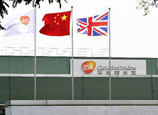
A video went viral on Weibo this month alleging that foreigners have advantages over local residents in China. The cute animated short stated that foreigners investing in China enjoy tax breaks when setting up businesses, have higher income tax exemption thresholds and find it easier to buy property.
There are plenty of people who would dispute the claims made by the video, particularly among foreign investors in China who have learned to be patient as they await economic reforms that will alleviate what many see as a challenging business environment.
News of the pilot free trade zone (FTZ) in Shanghai has raised a flicker of excitement on this score. Billed as part of Premier Li Keqiang's program of financial reform, the FTZ will seek to rectify certain long-standing gripes about the country's investment climate.
Commodities exchanges will be unleashed and domestic Chinese banks will be able to scale up their overseas operations, further testing the waters for full yuan convertibility.
It is encouraging that this pilot program seems to be a priority for the new leadership, but many were hoping for broader and more permanent reform.
Although certain sectors do stand to directly benefit from the Shanghai FTZ, most of its flagship policies have been touted in the past. Several promises and plans to press ahead with full yuan convertibility have been raised, only to quickly fall by the wayside, either dismantled or ignored for lack of political motivation.
A less cynical observer might say that such promises came toward the end of the tenure of the previous Chinese leadership, and that they were delayed so they could be fully rolled out by the new government. This view finds support in the personal investment displayed by Li Keqiang in establishing the Shanghai FTZ, and the short turnaround time from planning to implementation.
But the new FTZ and accompanying policies alone will not be enough to address the concerns of overseas companies seeking to invest in China.
The dwindling Chinese economy has seen a majority of multinational companies reassess their Chinese growth perspectives. Financial analysts welcome the FTZ, but still say there is no sign of larger-scale deregulation.
In the meantime, examples are piling up of courts blatantly supporting the home side in cases of litigation between foreign and Chinese partners; while this year's Business Climate Survey by the American Chamber of Commerce has revealed that just 28 percent of respondents saw the quality of China's business investment rising, down from 43 percent in 2012.
China may be giving Shanghai a pilot FTZ, but when will it finally let the country accelerate?
The author is an editor with the Global Times.
















 Singer in spotlight after blog post
Singer in spotlight after blog post


![]()
